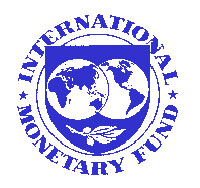Global economy is still growing, IMF
The world economy is poised for its fastest five-year growth streak in three decades, the International Monetary Fund said yesterday, adding that declining oil prices have helped make its forecast more certain.

Global growth will approach 5 percent this year, the fund's managing director, Rodrigo de Rato, said in Washington. The outlook is virtually unchanged from the fund's September forecast for a 4.9 percent expansion.
"Downside risks to this benign economic environment seem now less than a few months ago," de Rato said. "Declining oil prices have eased both risks to aggregate demand and inflation pressures, though volatility in oil prices remains a concern."
The price of a barrel of crude oil has fallen 32 percent since early August, suggesting energy prices will be less of a catalyst for inflation.
Another risk identified by the fund, lopsided global trade and investment flows, has also diminished, de Rato said. The US trade deficit narrowed in November to the smallest since July 2005.
The growth spurt gives policy makers a chance to remove barriers to global trade and investment and help ensure the expansion will continue, de Rato said. He urged leaders to revive the Doha round of world trade talks, which collapsed last year, the Boston Globe reports.
"The global environment looks quite favorable, and this provides a not-to-be-missed opportunity for all countries to advance structural reforms and fiscal consolidation that would help sustain the underpinnings of continued growth and prosperity," de Rato said.
John Lipsky, the new first deputy managing director of the IMF, said the world economy had enjoyed an “unexpectedly favourable period of global economic performance” that looked set to continue this year.
He attacked the view that recent global economic performance has been poor because of the emergence of imbalances.
“This has been a success and not a failure,” he said.
Mr Lipsky said the challenge in terms of global imbalances was to find ways to help sustain this strong growth, the Financial Times reports.
The U.S. current-account deficit widened to a record $225.6 billion in the third quarter of last year as the trade gap grew and the country paid more interest to overseas investors. The U.S. needs to attract about $2.5 billion a day in overseas investment to fund the deficit.
Rising exports in recent months suggest that the current account deficit, the broadest measure of trade, may not widen further. The trade shortfall narrowed in November to the smallest since July 2005 as accelerating global growth and a weaker dollar pushed exports to a record, Bloomberg reports.
Source: agencies
Prepared by Alexander Timoshuk
Pravda.ru
Subscribe to Pravda.Ru Telegram channel, Facebook, RSS!

